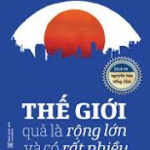“Nhật Bản là một đế chế của những ký hiệu, nơi mà mỗi hành động, mỗi vật thể đều mang trong mình một tầng nghĩa sâu xa, phản ánh sự tinh tế và phức tạp của văn hóa nơi đây.”
“Đế chế Ký Hiệu” của Roland Barthes là một tác phẩm xuất sắc, đưa độc giả vào thế giới của ký hiệu học với những phân tích sâu sắc và góc nhìn mới mẻ về văn hóa và truyền thông. Barthes, một trong những nhà lý luận văn học và ký hiệu học hàng đầu của thế kỷ 20, đã mang đến cho độc giả một cuốn sách đầy tính triết lý và trí tuệ, giúp chúng ta hiểu rõ hơn về cách mà các ký hiệu ảnh hưởng đến cuộc sống hàng ngày.
Nhật Bản qua lăng kính của Roland Barthes
Trong “Đế chế Ký Hiệu,” Barthes đặc biệt dành nhiều trang để viết về Nhật Bản, một đất nước ông đã có dịp trải nghiệm và phân tích kỹ lưỡng. Ông nhìn nhận Nhật Bản không chỉ qua bề mặt của những ký hiệu quen thuộc mà đi sâu vào tầng nghĩa ẩn chứa bên trong, giải mã những yếu tố văn hóa độc đáo và phong phú của đất nước này.
Thơ Haiku và Ký Hiệu Văn Hóa
Một trong những điểm nổi bật và thú vị của cuốn sách là cách Barthes phân tích thơ haiku, một thể loại thơ đặc trưng của Nhật Bản. Barthes nhìn nhận haiku không chỉ là một dạng thơ ngắn gọn mà còn là một biểu hiện sâu sắc của tâm hồn và triết lý sống của người Nhật.
“Thơ haiku, với ba dòng và mười bảy âm tiết, là một ký hiệu hoàn hảo của sự tối giản và tinh tế, nơi mà mỗi từ đều chứa đựng một vũ trụ nhỏ bé và phong phú.”
Trong cuốn sách, Barthes chỉ ra rằng, mỗi bài haiku không chỉ là một bức tranh nhỏ về thiên nhiên mà còn là một phản ánh của sự hài hòa giữa con người và môi trường xung quanh. Thơ haiku giúp người đọc cảm nhận được sự tĩnh lặng và sự hiện diện đầy đủ trong từng khoảnh khắc.
“Haiku không chỉ miêu tả cảnh vật mà còn là một lời mời gọi chúng ta dừng lại, lắng nghe và cảm nhận sâu sắc hơn về thế giới xung quanh.”
Barthes cũng phân tích cách mà haiku sử dụng các hình ảnh thiên nhiên để truyền tải cảm xúc và suy tư. Ông nhấn mạnh rằng, sự đơn giản và tinh tế của haiku chính là điểm mạnh của thể loại này, khiến người đọc phải dừng lại và suy ngẫm.
“Mỗi bài haiku giống như một giọt sương trên lá, nhỏ bé nhưng chứa đựng cả bầu trời, phản ánh sự tinh tế và chiều sâu của tâm hồn Nhật Bản.”
“Đế chế Ký Hiệu” của Roland Barthes là một cuốn sách không thể bỏ qua cho những ai quan tâm đến ký hiệu học, văn hóa và truyền thông. Với những phân tích sâu sắc và góc nhìn mới mẻ về Nhật Bản và thơ haiku, cuốn sách này không chỉ giúp độc giả hiểu rõ hơn về văn hóa độc đáo của đất nước này mà còn khuyến khích chúng ta suy nghĩ lại về cách mà chúng ta tương tác và tạo ra ý nghĩa trong cuộc sống hàng ngày.
“Nhật Bản là một đế chế của những ký hiệu, nơi mà mỗi yếu tố đều phản ánh một phần của bức tranh văn hóa tổng thể, và thơ haiku là một minh chứng tuyệt vời cho sự tinh tế và sâu sắc đó.”
***
“Japan is an empire of signs, where every action, every object carries a profound layer of meaning, reflecting the sophistication and complexity of its culture.”
“Empire of Signs” by Roland Barthes is an outstanding work that takes readers into the world of semiotics with deep analyses and fresh perspectives on culture and communication. Barthes, one of the leading literary theorists and semioticians of the 20th century, offers a philosophically rich and intellectually stimulating book that helps us understand how signs influence our daily lives.
Japan through the Lens of Roland Barthes
In “Empire of Signs,” Barthes devotes many pages to Japan, a country he had the opportunity to experience and analyze thoroughly. He perceives Japan not just through the surface of familiar signs but also by delving into the underlying layers of meaning, decoding the unique and rich cultural elements of this nation.
Haiku Poetry and Cultural Semiotics
One of the book’s most notable and interesting aspects is how Barthes analyzes haiku poetry, a distinctive form of Japanese poetry. Barthes views haiku not merely as a brief poetic form but as a profound expression of the Japanese soul and philosophy of life.
“Haiku, with its three lines and seventeen syllables, is a perfect sign of simplicity and elegance, where each word contains a tiny yet rich universe.”
In the book, Barthes points out that each haiku is not just a small picture of nature but also a reflection of the harmony between humans and their environment. Haiku allows readers to feel the tranquility and full presence in each moment.
“Haiku not only describes the scenery but also invites us to pause, listen, and deeply appreciate the world around us.”
Barthes also analyzes how haiku uses natural imagery to convey emotions and thoughts. He emphasizes that the simplicity and subtlety of haiku are its strengths, making readers pause and reflect.
“Each haiku is like a dewdrop on a leaf, tiny yet containing the entire sky, reflecting the elegance and depth of the Japanese soul.”
“Empire of Signs” by Roland Barthes is a must-read for those interested in semiotics, culture, and communication. With profound analyses and fresh perspectives on Japan and haiku poetry, this book not only helps readers better understand the unique culture of this country but also encourages us to rethink how we interact and create meaning in our daily lives.
“Japan is an empire of signs, where each element reflects a part of the overall cultural picture, and haiku poetry is a perfect testament to that elegance and depth.”







